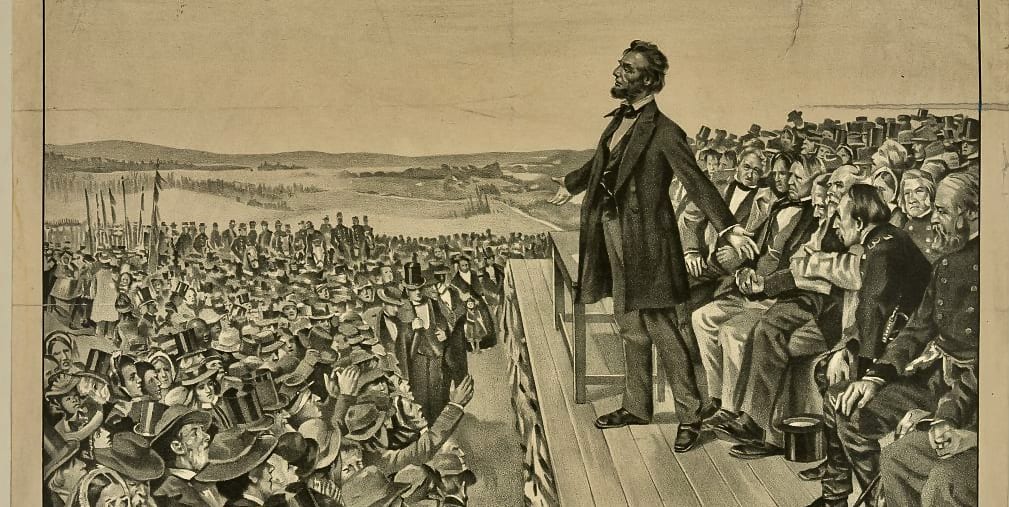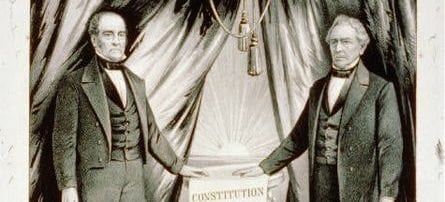Introduction
Along with the victory at Vicksburg (July 4, 1863), which gave complete control of the Mississippi River to the north, the victory at Gettysburg, Pennsylvania (July 1–3, 1863), is considered the point at which the tide of war turned in favor of the Union. Southern forces never advanced farther north than Gettysburg. Their retreat from the battlefield marked the receding tide of rebellion, although much hard fighting remained before the Confederacy’s ultimate defeat. But what would that ultimate defeat, and the deaths of so many in this battle and in others to come, mean for the nation? Lincoln gave his answer to that question when he spoke at the dedication ceremony for the cemetery where the Union dead of Gettysburg were buried.
—Joseph R. Fornieri and David Tucker
Four score and seven years ago our fathers brought forth on this continent, a new nation, conceived in liberty, and dedicated to the proposition that all men are created equal.
Now we are engaged in a great civil war, testing whether that nation, or any nation so conceived and so dedicated, can long endure. We are met on a great battlefield of that war. We have come to dedicate a portion of that field, as a final resting place for those who here gave their lives that that nation might live. It is altogether fitting and proper that we should do this.
But, in a larger sense, we cannot dedicate—we cannot consecrate—we cannot hallow—this ground. The brave men, living and dead, who struggled here have consecrated it, far above our poor power to add or detract. The world will little note, nor long remember what we say here, but it can never forget what they did here. It is for us the living, rather, to be dedicated here to the unfinished work which they who fought here have thus far so nobly advanced. It is rather for us to be here dedicated to the great task remaining before us—that from these honored dead we take increased devotion to that cause for which they gave the last full measure of devotion—that we here highly resolve that these dead shall not have died in vain—that this nation, under God, shall have a new birth of freedom—and that government of the people, by the people, for the people, shall not perish from the earth.









































































































































































































